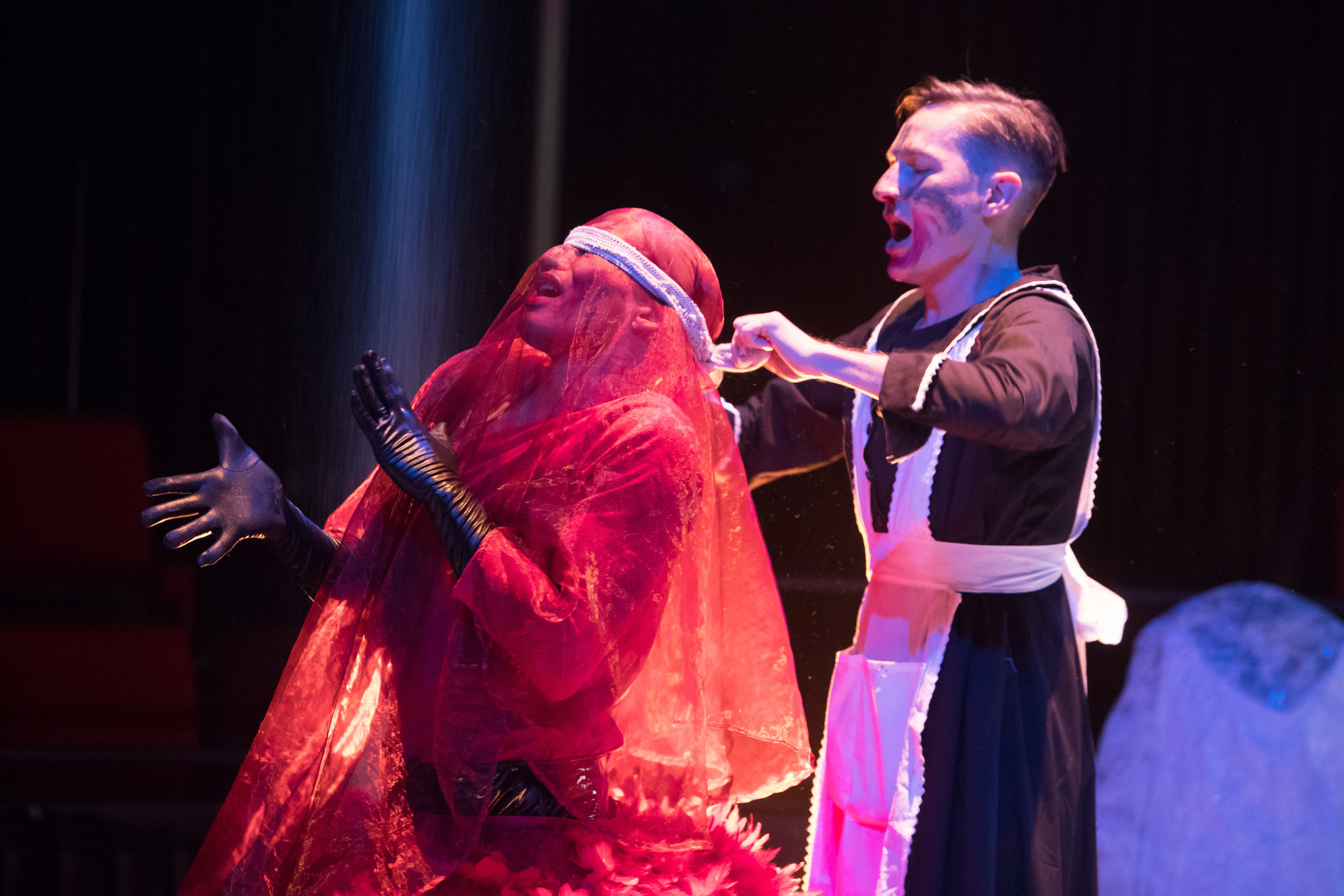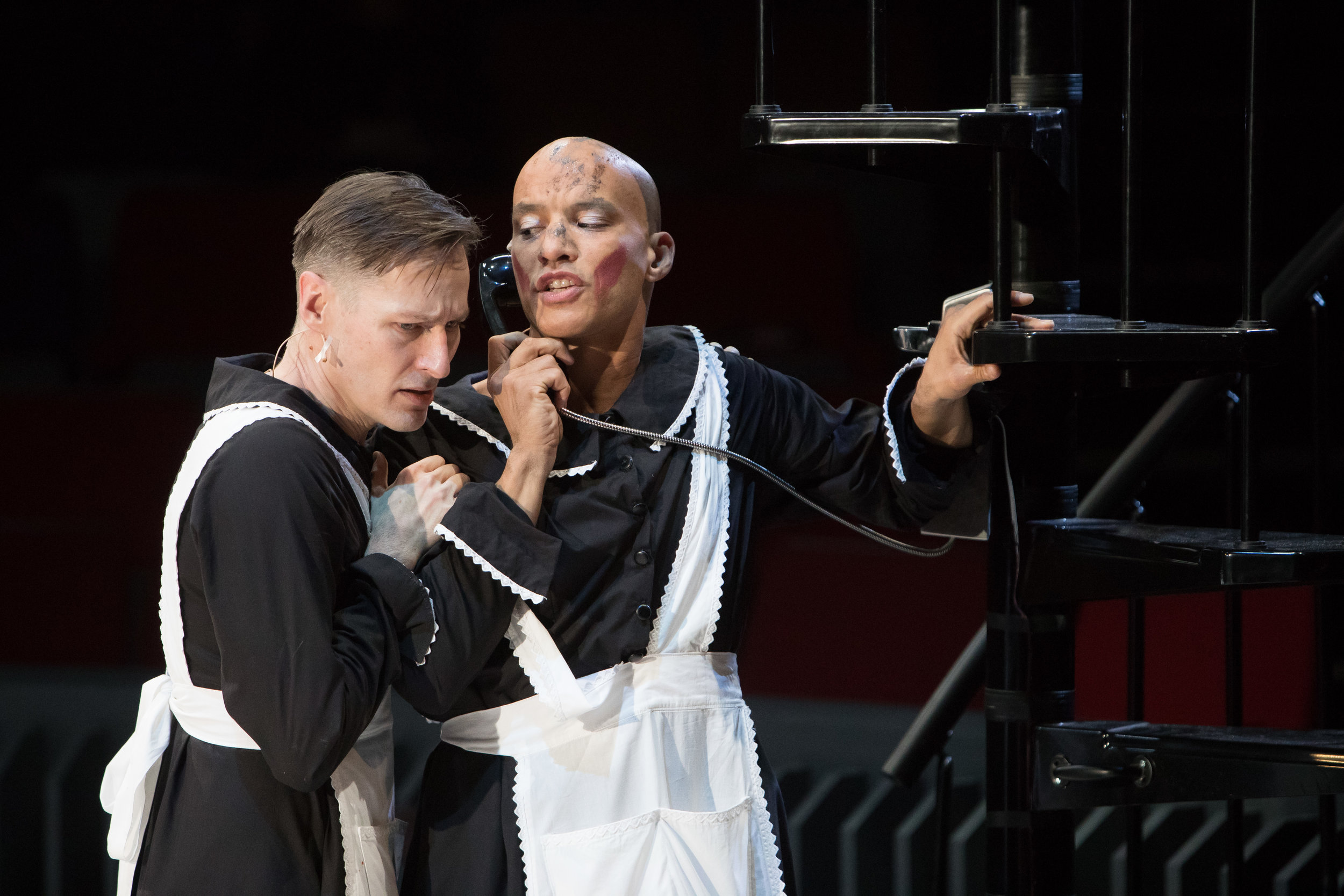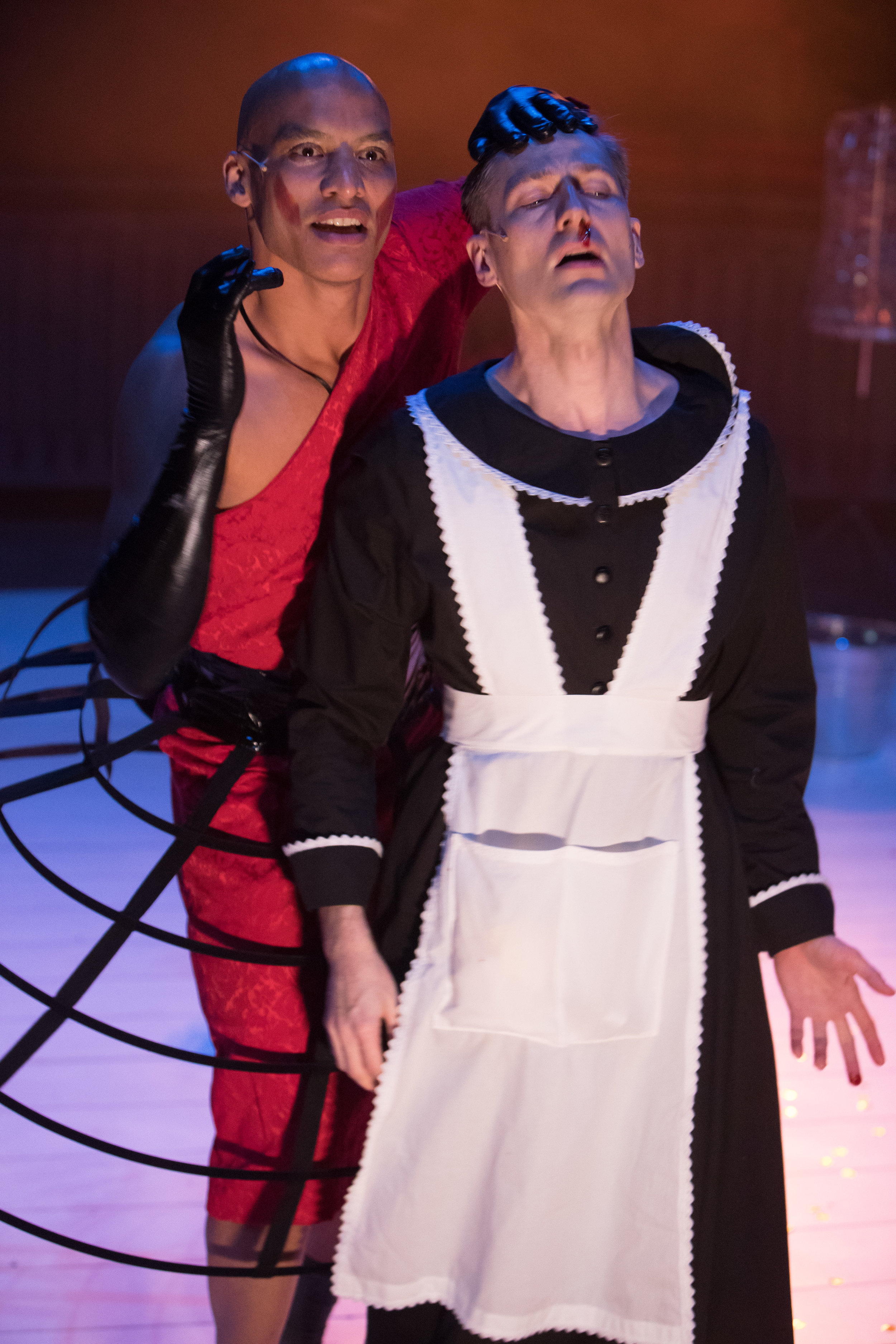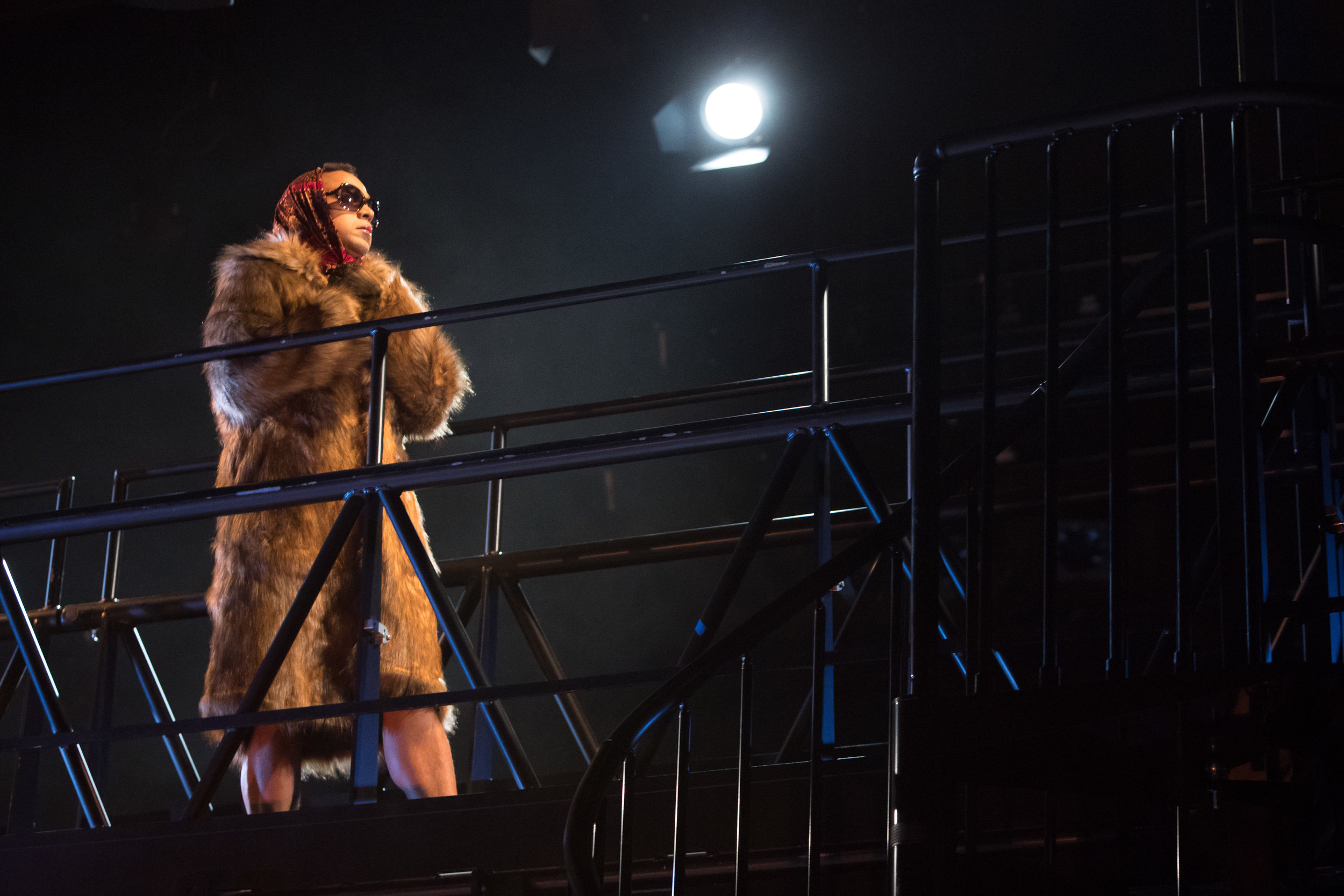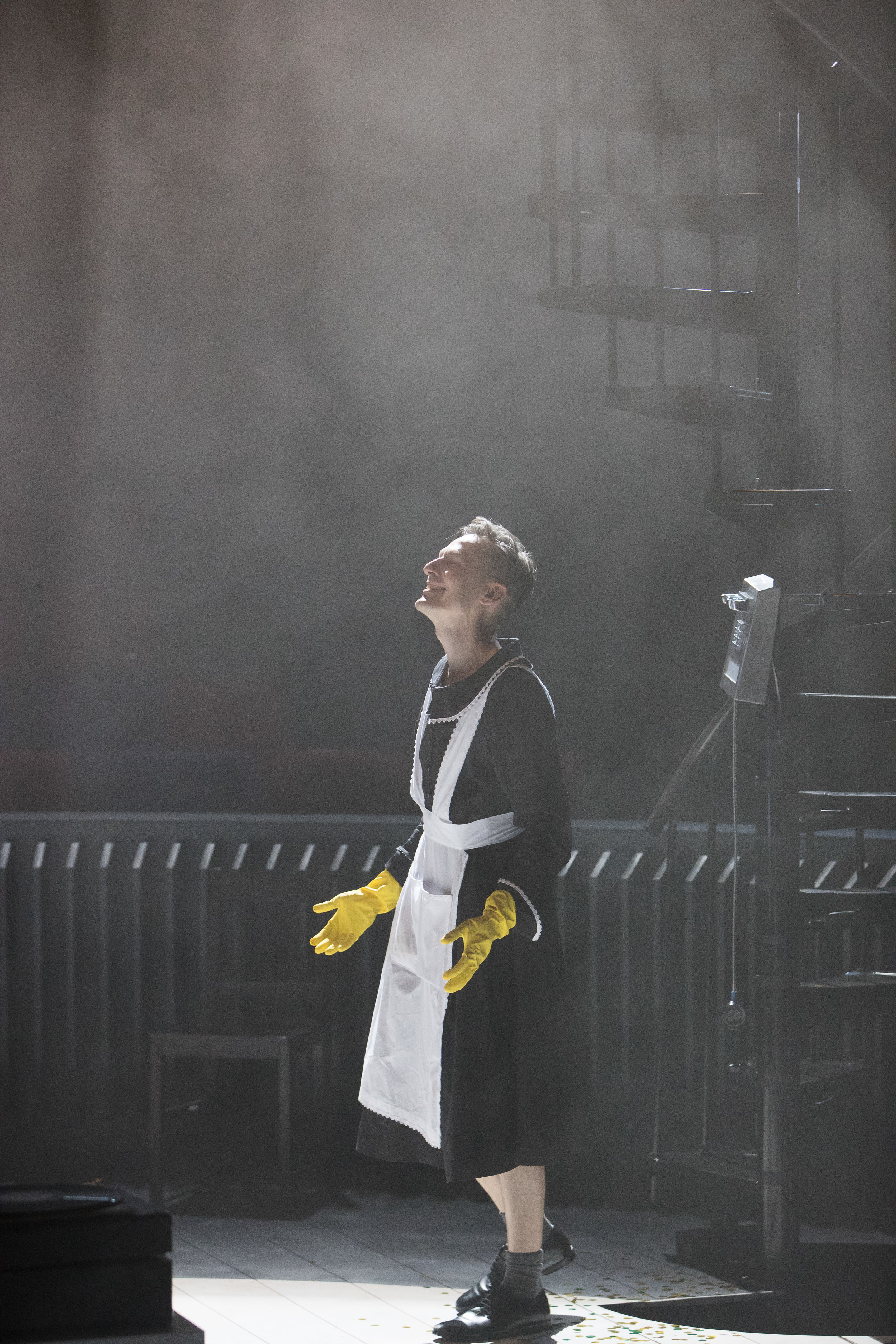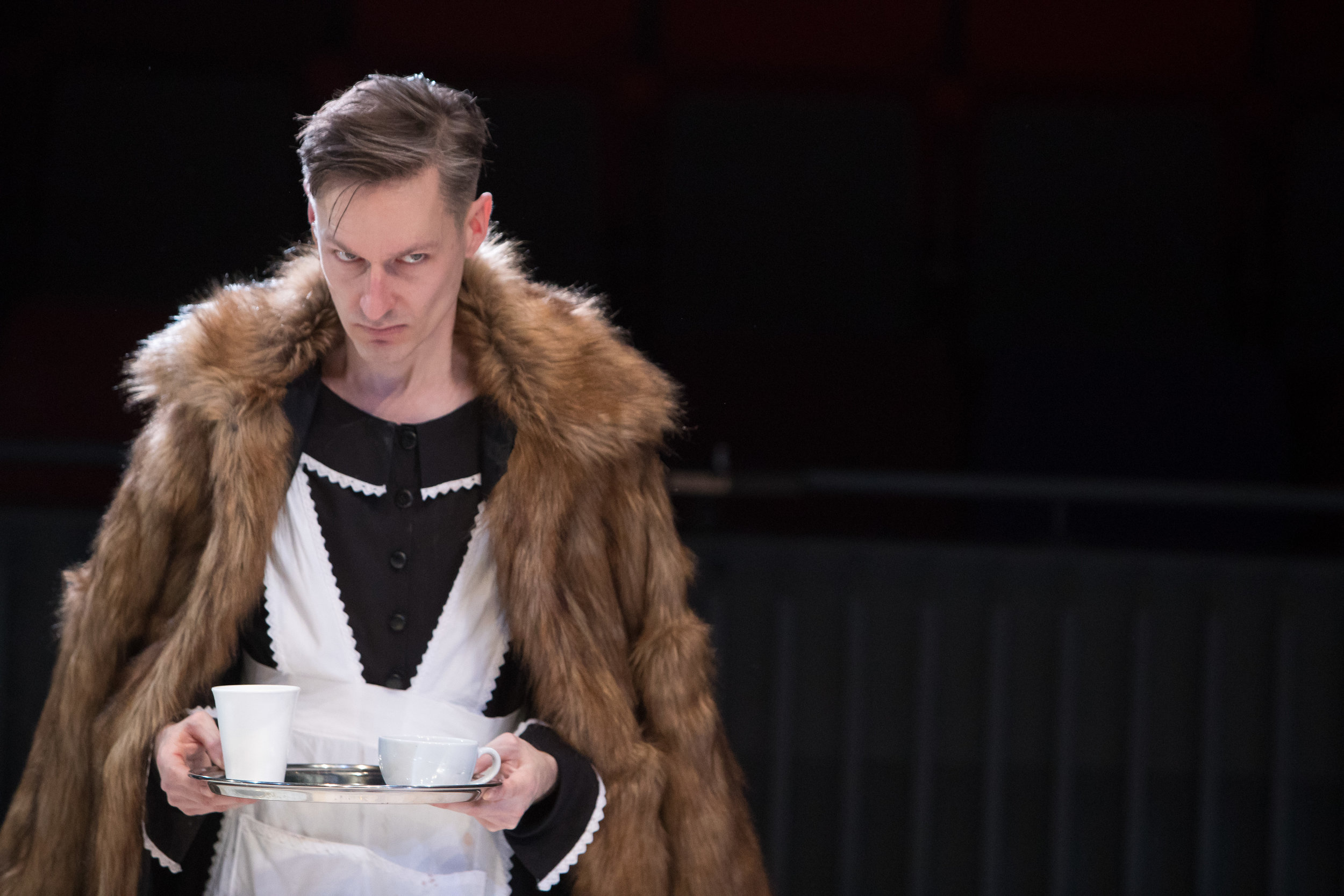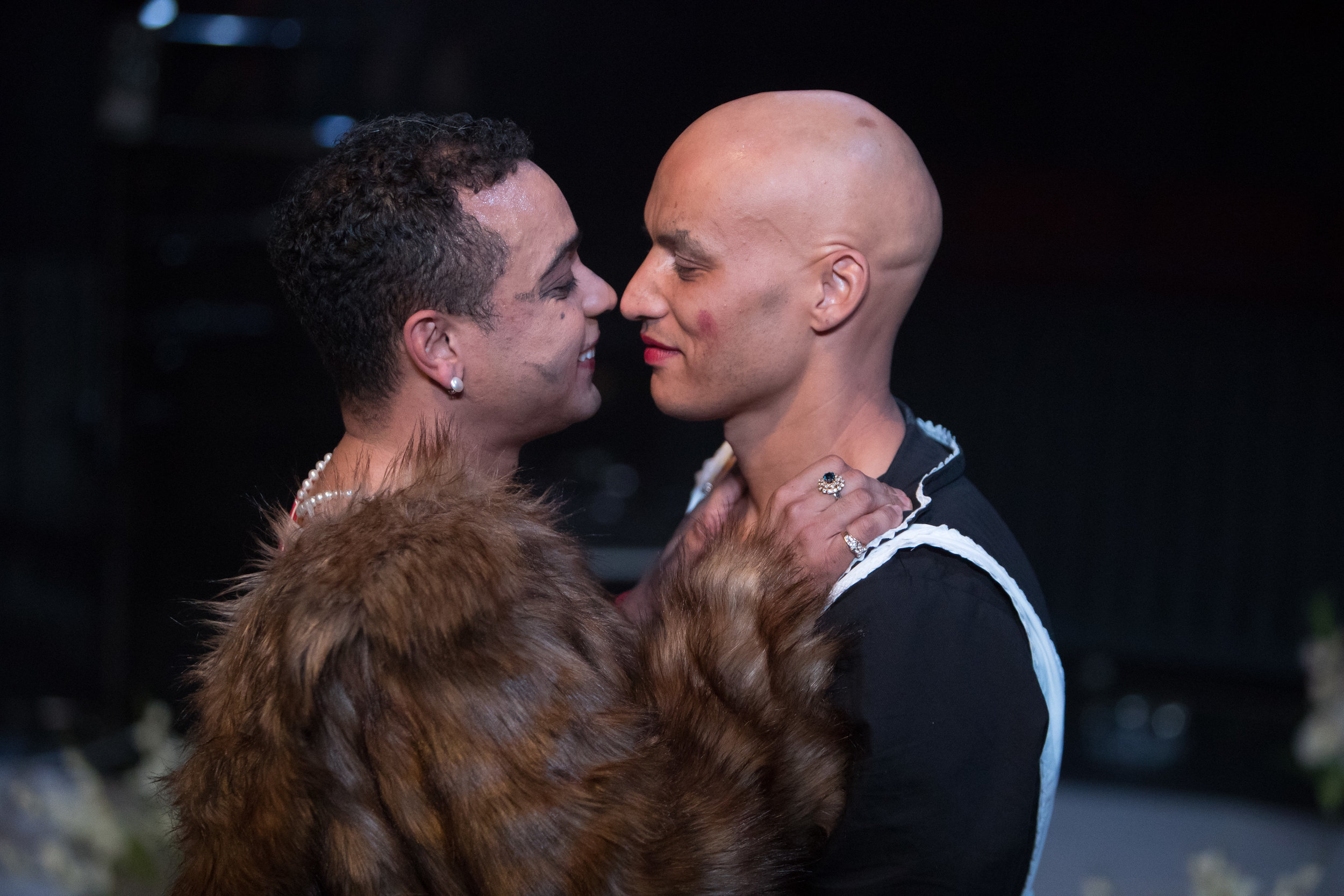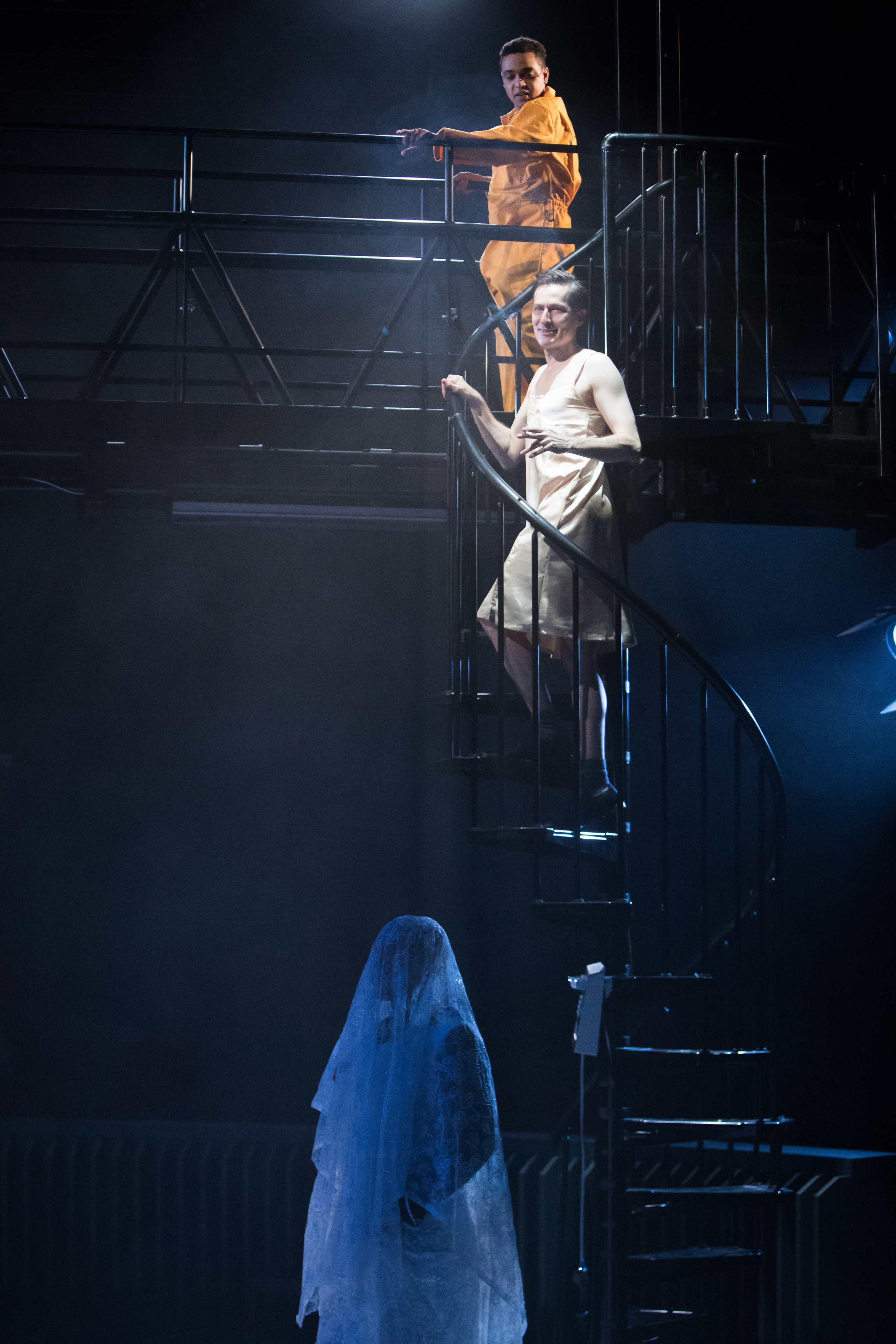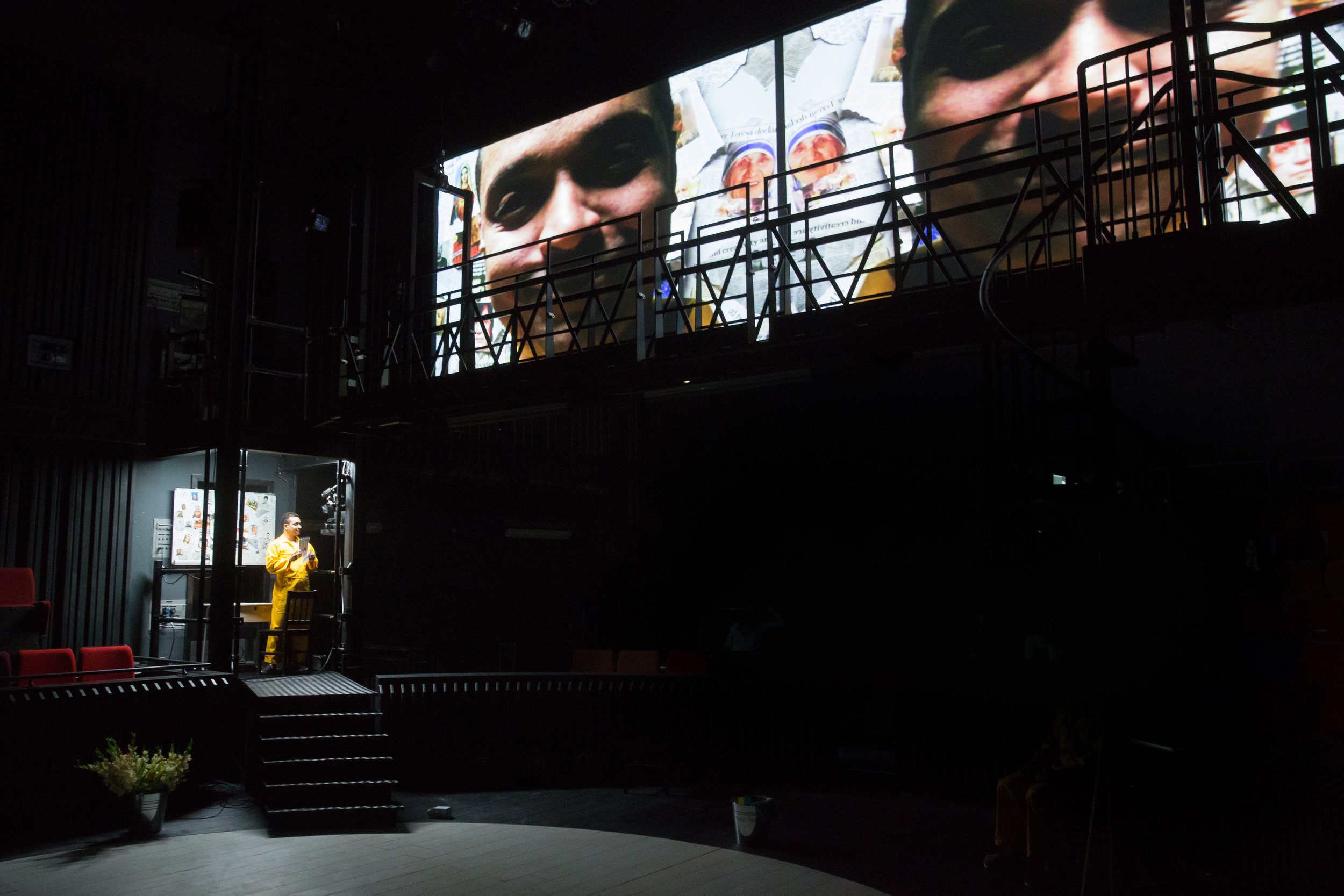The Maids at HOME: Deconstructing Gender Roles on Stage
Maids playing masters, maids playing murderers; men playing maids. This production of Jean Genet’s The Maids at once addresses gender roles head-on and never mentions gender at all.
Luke Mullins and Jake Fairbrother, as the infamous Papin sisters, are almost entirely gender-neutral in their performance. Their shapeless dresses swamp their large frames, rendering them disturbingly unsettled in their own skin. In stark contrast, Danny Lee Wynter’s Mistress brings flamboyant cabaret to the stage. She enchants the audience and maids alike, toeing the line between heroine and villain.
Bringing together two very different approaches to gendered performance, the stage comes to life most when the three characters interact. Touches of comedy creep in between the pervading sense of queasiness.
Collecting our tickets, we were told: “Tonight you’ll be sat on the stage”. Transforming Home’s Theatre One for this in-the-round production draws the audience into the rather unsettling and uninviting world of the three characters. The design, by Ruari Murchison, is stark and striking: a prison cell penetrated only by the Mistress’s flamboyant fashions and the literal sands of time.
As we looked on at other audience members across the stage, it is clear that the show is defined by its conscious awareness of theatrical artifice. Lily’s Sykes’ direction centres on the idea that these characters are a product of their audience. Sinister use of a live-streamed video camera onstage, and a suspended catwalk from which the action can be watched and intruded upon, exemplify the poetic comment and add welcome layers to the three-hander.
Yet, this reliance on external definition can’t help but leave the audience grappling for meaning. All this captivating style comes at the cost of narrative substance: the production is an aesthetic vessel above all else. The scripted action creeps along slowly, with little in the way of plot progression. To excite the action (or lack thereof), the characters flit sharply between emotions; Solange (Mullins) in particular is the very essence of psychopathy. Indeed, the cast do very well to ignite the script. These heightened emotions flood the stage with intensity, but are far from linear or logical in their development.
We are on tenterhooks, uncertain what on earth might come next or how we ought to feel about it. But that is entirely the point of this production: Hannah Calascione, Assistant Director, boldly states “we hope the production will ask more questions than it will answer”. As audience, we are denied our natural instinct to “make sense of” the show.
This production, as translated by Martin Crimp, frames the action within Genet’s own imprisoned life. We are given a taste of an explanatory ‘art mirrors life’ frame, yet the playwright’s own quotes projected above the stage undermine any semblance of logic: “maybe the characters are me, maybe they’re not”. Sykes’ production battles to avoid didacticism altogether.
I spent some of the show wondering what had truly been gained by casting three men. Would the message be any different coming from women? The play does little to spotlight the cross-gendered casting, seemingly suggesting that men and women are interchangeable. Ultimately, gender becomes just another duality that this play undercuts. Political comment takes a backseat to ‘art for art’s sake’ in this production, but it quietly resonates underneath the sinister soundtrack.
Catch The Maids at Home, Manchester, from 16th November until 1st December. For tickets and more information, visit the Home website
Photos by Jonathan Keenan


